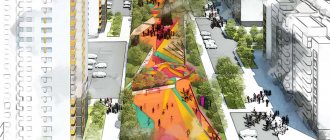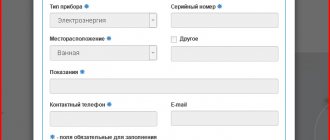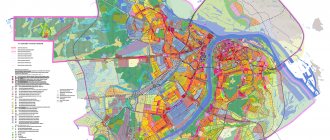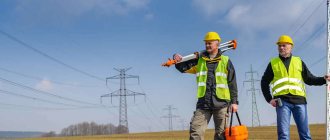Most residents of city apartments and private houses are accustomed to receiving all the benefits of civilization. Uninterrupted provision of electricity, water, maintenance of sewer networks, maintaining the operation of telephone lines - these are the functions of housing and communal services that have become commonplace and familiar to us.
However, accurate knowledge of all the responsibilities of this organization will make everyday life more fulfilling and comfortable. In addition, according to statistical data, housing and communal services often do not fully fulfill their obligations to the population. And quality control of their functioning will ensure a more complete implementation of work paid for by the housing and communal services population.
Main functions of housing and communal services
Social infrastructure facilities and their full-fledged work - this is the area that falls within the scope of work of housing and communal services. Ensuring the full functioning of residential buildings and comfortable living of the population in rural areas can be considered the main functions of public utilities.
In general, the functions of housing and communal services are as follows:
- providing residential premises with electricity, hot and cold water;
- control over the energy saving process;
- sewerage work, which includes installation and control of the wastewater disposal system, water supply;
- accounting for the population's consumption of utilities, calculating their costs and controlling payment;
- ventilation work, air conditioning;
- organization of elevator facilities and its timely maintenance;
- low-current networks (television, computer);
- organization of household waste removal;
- performing work on grounding buildings, installing lightning rods;
- monitoring the condition of residential buildings and common areas;
- timely repair of buildings and structures.
The functions of housing and communal services also include disinfection of public places. With the help of municipal services, the surrounding areas are being improved.
The frequency of carrying out the listed work varies. However, all of them must be carried out regularly by utilities. They also monitor the operation of all utilities and structural elements of residential buildings.
Reasons
The function of municipal housing control out on the basis of:
- Constitution of the Russian Federation;
- Code of Administrative Offenses of the Russian Federation;
- Federal Law No. 131 of October 6, 2003 “On the general principles of organizing local self-government in the Russian Federation”;
- Federal Law No. 294 of December 26, 2008 “On the protection of the rights of legal entities and individual entrepreneurs in the exercise of state control (supervision) and municipal control”;
- Federal Law No. 59 of May 2, 2006 “On the procedure for considering appeals from citizens of the Russian Federation”;
- Rules for the preparation by state and municipal control bodies of annual plans for conducting inspections of legal entities and individual entrepreneurs, approved by Decree of the Government of the Russian Federation No. 489 of June 30, 2010.
Is it possible to control the work of housing and communal services?
The functions of housing and communal services are varied; the frequency of performing mandatory work is regulated by current legislation. However, owners of residential premises also have the opportunity to control the correctness and regularity of carrying out the listed work.
To do this, you should contact specialists who conduct settlement work on payment for the services provided. This will make it possible to understand how the invoices we receive monthly are calculated.
As many owners of residential premises note, housing and communal services often bill incorrectly calculated amounts to pay for their services. Regular monitoring of invoices is required. In the next article on our website you can read how you can check the correctness of utility bills. This will always allow you to be sure that the payment corresponds to the scope of services that are regulated by the service.
To understand the full range of services included in the responsibilities of public utilities, you need to contact the housing and communal services of the area. Utility workers are required to provide a complete list to residents upon their first request.
What is municipal housing control
In essence, this is the activity of local government bodies in the housing and communal services sector, which are empowered in accordance with the law to organize and conduct inspections in their constituent entities of the Russian Federation aimed at identifying compliance by legal entities and individual entrepreneurs with the requirements imposed on them, in accordance with Part 1.1 of Article 20 of the Housing Code RF.
Simply put, local government housing and communal services can conduct scheduled and unscheduled inspections of management companies for compliance of their activities with the norms, rules and requirements established by municipal legal acts, federal laws and by-laws (Article 17.1 of Federal Law No. 131 of October 6, 2003 “On General principles of organization of local self-government in the Russian Federation").
Also, state authorities of constituent entities of the Russian Federation can vest with legal rights local government bodies certain powers to conduct inspections as part of licensing control in relation to legal entities or individual entrepreneurs carrying out activities to manage apartment buildings on the basis of a license (Part 1.1 of Article 20 of the RF Housing Code).
Powers of municipal housing inspectors
Municipal housing inspectors , in the manner established by the legislation of the Russian Federation (Part 5 of Article 20 of the Housing Code of the Russian Federation), have the right:
- request and receive, on the basis of reasonable written requests, from state authorities, local governments, legal entities, individual entrepreneurs and citizens, information and documentation necessary to verify compliance with mandatory (licensing) requirements;
- freely, upon presentation of an official ID and a copy of the order/instruction of the head (his deputy) of the State Housing Control body, municipal housing control on the appointment of an inspection, to visit the territory and the apartment buildings located on it, common areas in residential buildings; (with the consent of the owners of the premises) residential premises and carry out their inspections, studies, tests, investigations, examinations and other control actions, as well as determine the legality of the decision by the general meeting of owners of premises in the apartment building to select a management company, conclude a management agreement with the management and comply with the conditions this remote control;
- issue orders to eliminate identified violations and to take measures to ensure compliance with mandatory (licensing) requirements;
- draw up protocols on administrative offenses related to compliance with mandatory (licensing) requirements;
- consider cases of administrative offenses and take measures to prevent such violations;
- send information to the authorized bodies on violations of mandatory (licensing) requirements for initiating criminal cases (if there are signs of crimes committed).
Who is responsible for what in the housing and communal services sector?
So, now in Russia there are 3 types of management of an apartment building (Article 161 of the Housing Code of the Russian Federation):
- Direct control. A house manager is selected who is responsible for everything and anything related to the common property: elevators, staircases, fences, land, etc. In fact, each owner pays for himself and regulates the quality of services. This type of control is almost never used. Relevant if the number of apartments in a building is no more than 12 (requirement of the Housing Code of the Russian Federation)
- Management through the Homeowners Association. A much more common type of control. In Russia it is used everywhere. In this case, responsibility for the maintenance of common property and the provision of utilities lies with the HOA represented by the organization and its chairman.
- Management of an apartment building through a management company. Still the most common type of control. Those same housing offices, housing departments and other organizations are nothing more than management companies. They are responsible for the common property in the apartment building and the provision of utilities.
Finding information about which company is responsible for your home is fairly easy. If this is a HOA, then the entire entrance will be covered with relevant notices, where such information will be indicated. If this is a management company, then you can enter in the Yandex/Google search bar: management company *your city and address*. With a 99% probability, the first link will be to the portal, where all the comprehensive information on management companies and the houses for which they are responsible is collected.
Article on the topic: where to complain about inflated tariffs for housing and communal services
What are representatives of homeowners associations and management companies responsible for?
For the provision of utilities, for maintaining common property in proper condition. In fact, for everything that residents of the house encounter every day when they leave their apartments.
For more detailed information, look at the receipt and service agreement that the management company should provide you with.
What is included in utilities?
- hot water supply; – cold water supply; – drainage; – power supply; – gas supply; – heating.
If problems arise with any of this, then feel free to file a claim with the management company or the HOA board. Dealing with suppliers is their task.
What is included in common property?
– landings, stairs, elevators are classified as common property, since they are intended for the passage (or passage) of all owners to their apartments; – the place where the elevator is located is called the elevator shaft. In addition to it, the house may have a ventilation shaft - it is also considered common property; – technical floor (needed for placing engineering equipment and laying communications); it can be located in the lower (technical underground), upper (technical attic) or in the middle part of the building; – some apartment buildings have premises designed to meet the social and living needs of residents. These are wheelchairs, recreation rooms, gyms, dance classes - of course, if all residents can use them. If someone bought two apartments on the ground floor of your house and converted them into a paid gym, these premises are not common property - they have their own owner; – the roof is also considered common property. In housing terminology, it is defined as “the upper enclosing structure of a building that performs load-bearing, waterproofing and thermal insulation functions”; – enclosing load-bearing and non-load-bearing structures of the house. First of all, these include walls. In addition, in accordance with this principle, the balcony slab is included in the common property. It should be understood that as part of the balcony, it is the slab that belongs to the common property. The owner carries out the maintenance of the parapet, the glazed part of the balcony and the canopy independently, since this is his personal property; – the technical basement also belongs to the common property of all owners of premises in an apartment building, since it serves for ventilation of the underground space under the premises of the first floor, as well as for the placement of engineering equipment and utility networks of the house; – a land plot is an area intended for the operation and maintenance of an apartment building. On the land plot there is a house, improvement elements and other objects intended for the maintenance, operation and improvement of this house;
Children's playgrounds and their condition, trash cans and waste removal, snow removal, roads in yards, lawns and landscaping, entrance areas - all this is the responsibility of the HOA and the management company. If something is done wrong, they are responsible for it. Even if they respond by complaining to you about the carelessness of the final performers, then that’s their problem. You are obliged to demand from them the fulfillment of their duties to demand the appropriate quality of work from specific performers, even up to their complete replacement and conducting legal proceedings with them. After all, you pay money for it!







